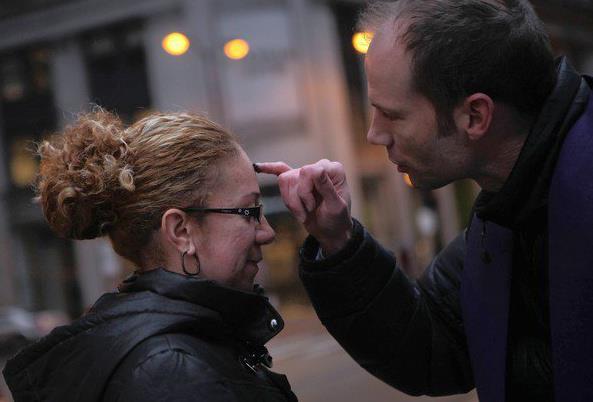It was his big smile that caught my attention at first.
There are all kinds of facial expressions that I see when I have imposed ashes over the years, but probably one of the most common is what I call the Solemn Look. The person waiting to be ashed may sense that this is a holy moment and in many ways it is! They close their eyes and intently listen as I press my pinkie onto their forehead, making the shape of the cross. After I finish and tell them to have a blessed Lent, they open their eyes, thank me and walk away on with their Solemn Look intact.
But not this man. He came up to me with a big smile on his face. He didn’t say anything to me (sometimes people ask if this ashing is really legitimate or if I’m really a pastor/priest), but he just walked up, took off his orange stocking hat and looked at me expectantly. But I hesitated. Not because of the smile or that I have something against orange hats, but I noticed…he already had an ash cross on his forehead.
I froze for a moment and quickly tried to remember if I’d ever learned anything in seminary about whether there was something verboten about ashing someone twice. I’d learned a lot about not baptizing more than once, but ashing? I couldn’t recall.
I wouldn’t have been surprised if the man was getting impatient with my hesitation, but he continued to wait patiently with a smile on his face. I decided to err on the side of grace and added to his ash cross with my own. Several years ago, I decided to use a lyric from the group Mumford & Sons when ashing someone: “In these bodies, we shall live. In these bodies, we shall die. Where you invest your love, you invest your life.” Again, without saying anything, he put his cap back on, nodded at me and went on with his day. He’d been double ashed. Blessed twice. Not unlike Elisha when he asks for a double portion of Elijah’s spirit in 2 Kings 9. Not unlike Simon Peter when he asks Jesus to wash not only his feet, but his hands and head in John 13. He taught me something that day about never settling for having just enough of God’s presence. There is always room for more.

